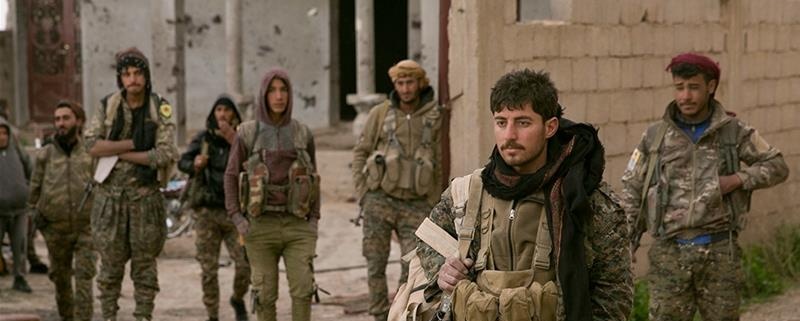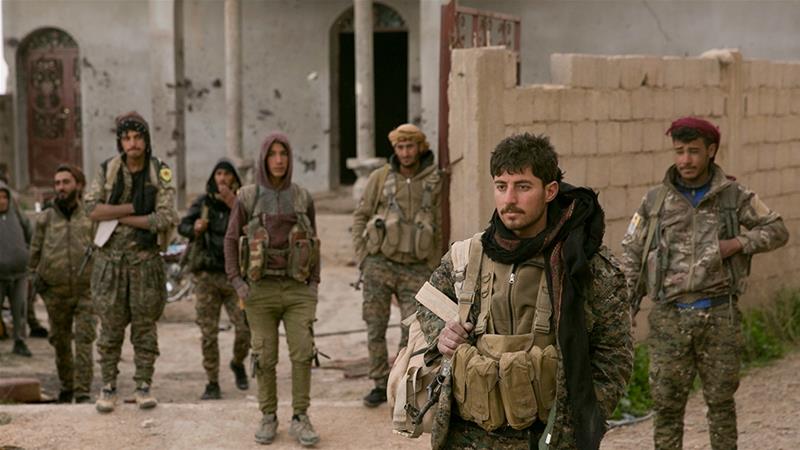The Turkish offensive against Kurdish groups
by Dr. Aslam Abdullah
Since 2015 Kurdish fighters in Northern Syria were a crucial US ally in the fight against the Islamic State of Iraq and Syria. The Kurdish People’s Protection Unit, or YPG, joined with Arab groups and created the Syrian Democratic Forces, or SDF. The United States, Britain, France, and other countries gave military support to the SDF. Kurds were at the forefront of the alliance. The growing influence of the Kurds was seen with caution and fear by Turkey. The leadership believed that such an influence might empower Kurds to create a country of their own with the support of the West. Turks have been fighting the Kurdish movement of greater autonomy and freedom for the last 100 years or even during the Ottoman Caliphate.
Turkey has its own problem and one of the problems stems from the Kurdish movement of autonomy. Kurdish groups have used both violent and peaceful methods in their pursuit of autonomy, but by and large, they are known as terrorist groups in Turkey. According to independent experts ‘ estimates, the Kurdish challenge to Turkish security has cost the country close to $500 billion over the years.
Turkey has a huge refugee presence. Turkey believes that the Syrian refugee problem can be resolved, partly, if at least a million Syrian refugees are sent to areas that are currently under Kurdish control provided the Kurdish groups are drive out. Turkey also believes that the safe zones that would host Syrian refugees would serve as a buffer zone between Turkey and the Kurdish fighters.
Kurds are estimated to be 30 million in Turkey, Armenia, Syria, Iran, and Iraq. They speak Kurdish, which is closer to Persian. In the agreement known as the Treaty of Sèvres, in the 1920s, Kurds were promised a homeland. But the treaty never came to be honored and Kurds became a divided people hem Turkey, Iraq, Syria, and Iran. Of the 30 million, half of them are in Turkey. Iraq is the only country in the region to have established an autonomous Kurdish region, known as Iraqi Kurdistan, inside its borders. Its parliament was founded in 1992. Kurds believe that they have suffered discrimination and violence in the states they have been living in. They also feel that Turks, in particular, have denied them their ethnic identity and linguistic rights.
America’s relations with the Kurdish people date back to World War I when President Woodrow Wilson and the Allied Nations supported the idea of an independent state for Kurds after the fall of the Ottoman Empire. The Kurds were given a small homeland when the Treaty of Sevres, which broke up the Ottoman Empire, was signed on August 10th, 1920. However, when the Treaty of Lausanne, which redrew the borders of Turkey, was signed in 1923, this small homeland ceased to exist.
The United States supported Kurdish guerilla factions in an attempt to overthrow Iraq’s Ba’ath party in the 1970s, it abruptly broke off relations in the early 1980s, which eventually led to Saddam Hussein’s brutal repression of the Kurds. When the Turks denied the United States passage into Iraq for the Iraqi Invasion of 2003, Iraqi Kurds took the opportunity to help the United States overthrow Saddam, finally. The Kurds also turned to American-led airstrikes to help repel the threat of ISIS in 2014. The Kurds have received US military and humanitarian aid.
However, President Trump’s decision to allow Turkey to launch a new offensive against Kurdish groups in its northeastern border has added a new chapter in the ongoing conflicts in the region.
















2019
1,127 views
views
0
comments